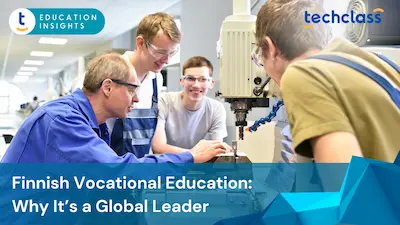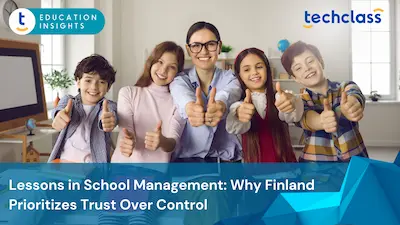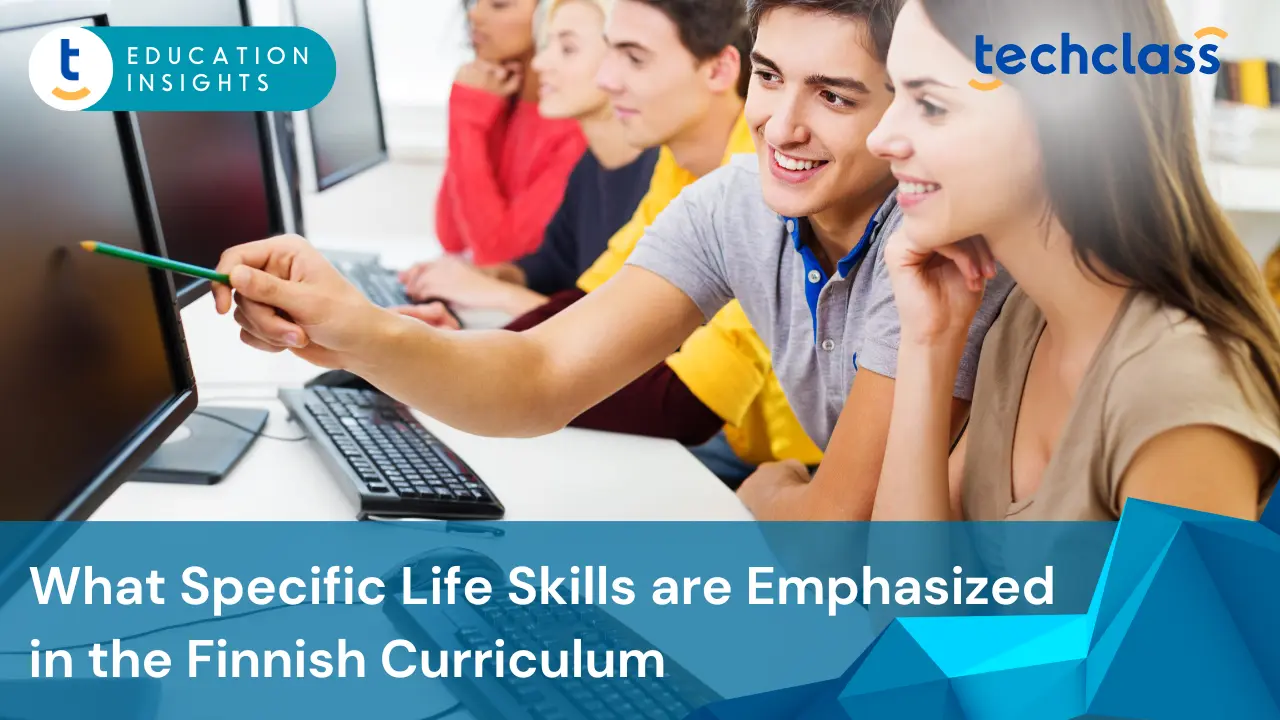
When you hear about the life skills in the Finnish curriculum, you are not just talking about reading, writing, and mathematics. You are talking about preparing every child for life emotionally, socially, digitally, and ethically. Finland’s education system is admired around the world not only for its academic achievements but also for its ability to nurture well-rounded individuals. The curriculum places strong emphasis on life skills that go beyond textbooks, shaping students into resilient, responsible, and creative citizens ready to face the challenges of the modern world.
In this article, we will explore what specific life skills are emphasized in the Finnish curriculum, how they are taught, and why they matter. We will also look at real-world examples and how other education systems can learn from Finland’s success. Finally, we will invite you to experience Finland’s schools firsthand through school visits.
Finland’s education structure is anchored in its National Core Curriculum, developed by the Finnish National Agency for Education. This curriculum is more than just a guide to subjects, it is a roadmap for building the future citizens of the country.
Every student, regardless of background, has the right to high-quality education. This principle goes beyond simply providing access to schools. It emphasizes creating inclusive classrooms where cultural diversity, different learning needs, and socio-economic differences are acknowledged and supported. For example, schools may provide additional language instruction for immigrant students or personalized support for pupils with special educational needs. The goal is not only to minimize disparities but also to ensure every child feels valued and capable of achieving success.
Teachers and schools can adapt the curriculum to local needs and classroom dynamics. In practice, this means teachers have the freedom to select teaching materials, methods, and even organize lessons around themes that resonate with their students. A rural school might integrate agricultural themes, while an urban school could focus on technology and entrepreneurship. This flexibility helps ensure that learning remains meaningful and relevant, and it allows teachers to respond quickly to students’ interests and the evolving needs of society.
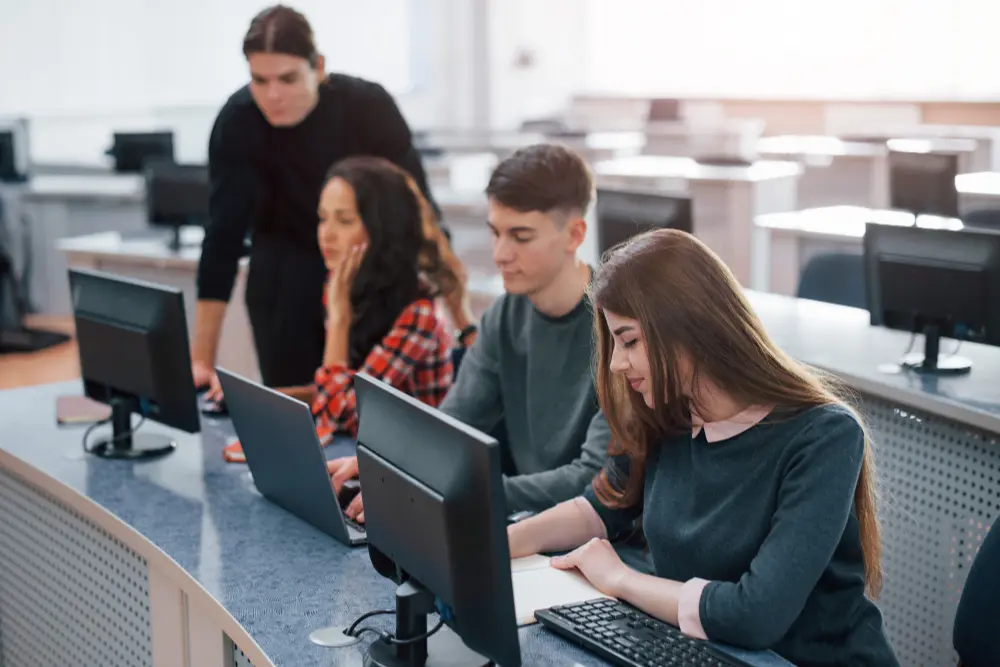
Students are encouraged to see education not as a phase that ends after school, but as a continuous journey throughout life. This mindset is built through teaching strategies that highlight curiosity, self-reflection, and independent study. Pupils are guided to set personal learning goals and to reflect regularly on their progress, fostering the belief that learning is a skill in itself. By encouraging critical thinking, adaptability, and resilience, Finnish schools prepare students for a future where careers, technologies, and societies may change, but the ability to keep learning will remain essential.
These principles ensure that life skills are not treated as optional but as essential, cross-cutting elements in every subject and at every stage of education.
At the heart of Finland’s curriculum is the concept of transversal competences. These are broad, cross-disciplinary skills that extend beyond individual subjects. Introduced in the 2014 reform of the National Core Curriculum for Basic Education, transversal competences ensure that students develop capabilities essential for everyday life, work, and active citizenship.
Some of the main transversal competences include:
This competence emphasizes the ability to reflect on one’s own learning, set goals, and develop problem-solving strategies. Students are guided to think critically about how they learn best and to identify personal strengths and areas for growth. Teachers often encourage pupils to plan their learning paths, set concrete targets, and review their achievements regularly. Project-based learning, where students must manage tasks independently or in groups, strengthens their self-direction and adaptability. As a result, learners develop resilience and confidence, preparing them to adapt and learn continuously in different contexts, both in school and throughout their lives.
Students are encouraged to understand their own culture, respect diversity, and communicate effectively. This competence is developed through activities that expose learners to multiple cultures, languages, and traditions. Arts, drama, and music provide creative channels for expression, helping students to convey ideas, emotions, and perspectives in different forms. Group discussions, debates, and collaborative projects further build empathy, active listening, and cooperative skills. By experiencing diverse viewpoints and practicing inclusive interaction, students gain the ability to navigate multicultural environments confidently. These experiences foster openness, empathy, and creativity, which are essential qualities for life in a globalized world.
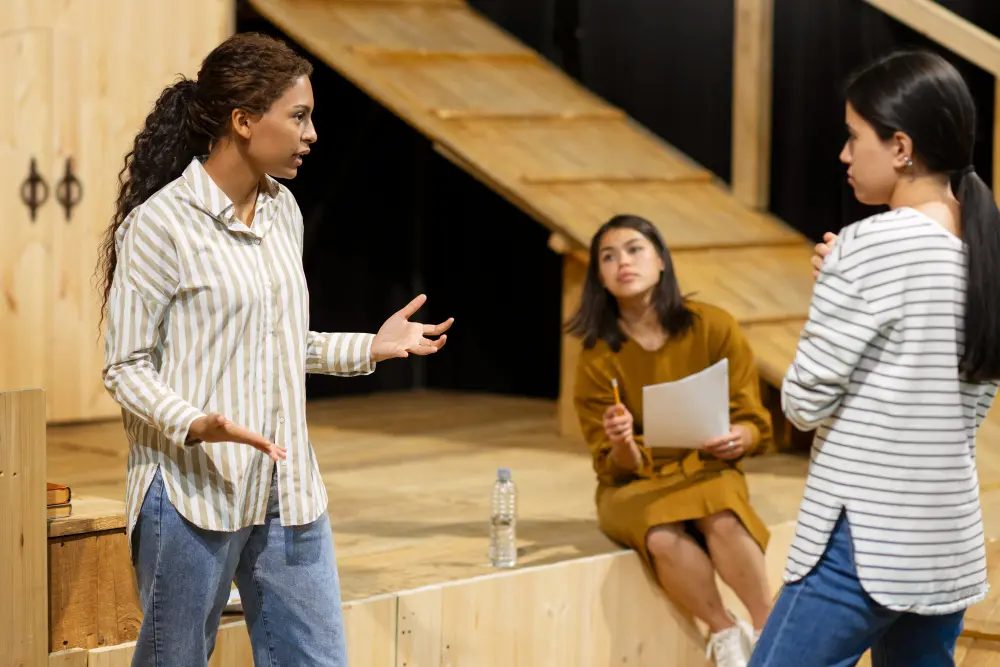
This competence covers health, well-being, and personal responsibility. It includes lessons on self-care, nutrition, physical activity, and emotional resilience. Students also learn practical skills such as organizing their daily routines, balancing study with leisure, and recognizing the importance of rest. Schools often integrate discussions about mental health, stress management techniques, and healthy lifestyle habits into everyday teaching, ensuring that pupils grow into adults capable of taking care of themselves holistically.
Students develop the ability to interpret and create meaning across various media forms, including digital, visual, and textual content. It strengthens critical evaluation skills and enables learners to navigate today’s information-rich environment. Pupils are encouraged to question sources, compare perspectives, and produce their own content such as essays, multimedia presentations, or digital stories. By doing so, they become confident and responsible communicators who understand the impact of media on society.
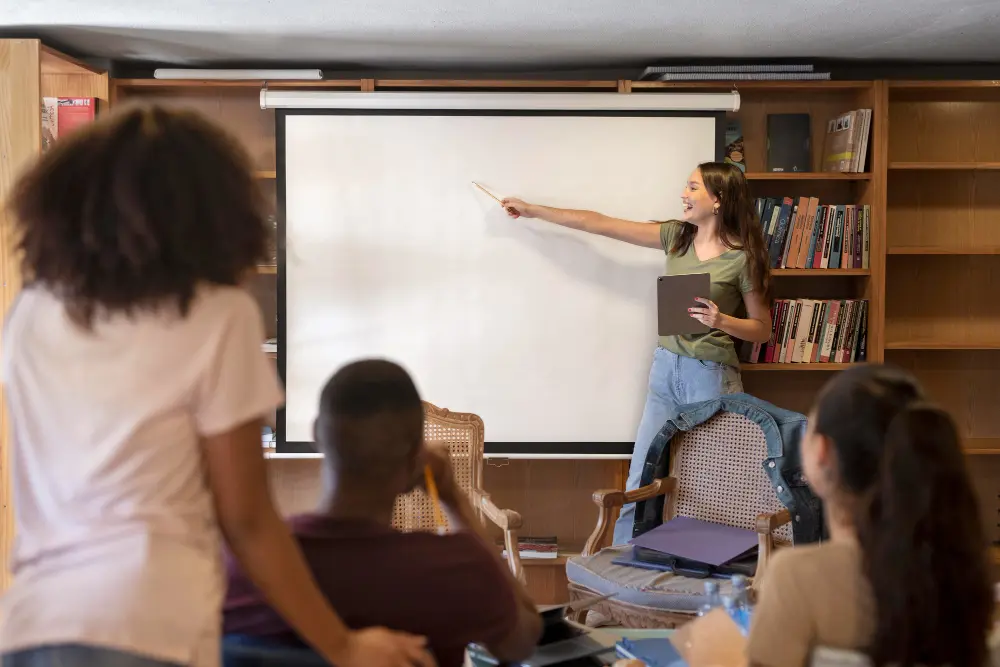
Information and communication technology skills prepare students for the digital world. They learn safe online behavior, digital collaboration, and the basics of coding. Beyond technical knowledge, the focus is on ethical and responsible use of technology, including issues of privacy, digital footprints, and online etiquette. Students often work in groups using digital platforms, practicing teamwork and communication in virtual settings. This ensures they can adapt to modern workplaces and digital communities.
This competence focuses on responsibility, initiative, and creativity. Students gain insights into work life and entrepreneurial thinking through practical projects and teamwork. For example, schools may organize entrepreneurship competitions where pupils create and run small-scale business projects. Such experiences cultivate leadership, problem-solving, and financial literacy. These skills prepare students for employment but also encourage them to see themselves as innovators capable of creating opportunities in society.
.webp)
Students learn to take active roles in decision-making and contribute to sustainability efforts. They engage in projects that highlight environmental awareness and global citizenship. For instance, schools may involve pupils in recycling programs, climate change campaigns, or local community projects. By participating in democratic decision-making within their schools, students gain experience in civic engagement and understand how their choices impact the future. This competence nurtures responsible citizens who value sustainability and collective well-being.
Each competence area is woven into the teaching of every subject, ensuring students gain these life skills in an integrated and holistic way.
Students are taught how to take responsibility for their health, well-being, and daily routines. This is not limited to physical education but extends into lessons on nutrition, stress management, and overall lifestyle choices. Students plan their own study schedules and reflect on progress, learning early on how to balance commitments and leisure. Guidance counseling supports them in developing self-care strategies and making informed decisions about their health. By cultivating these habits, schools equip students with resilience and independence for adult life.
Multiliteracy means more than being able to read and write. It is about understanding and producing meaning across different forms of media: text, images, video, and digital content. Students learn to evaluate information critically, an essential skill in the age of misinformation. They also explore the influence of media on society and are guided to create their own content responsibly, whether that is a school newspaper, short films, or online projects. This not only develops their communication skills but also their ability to participate actively in democratic societies.
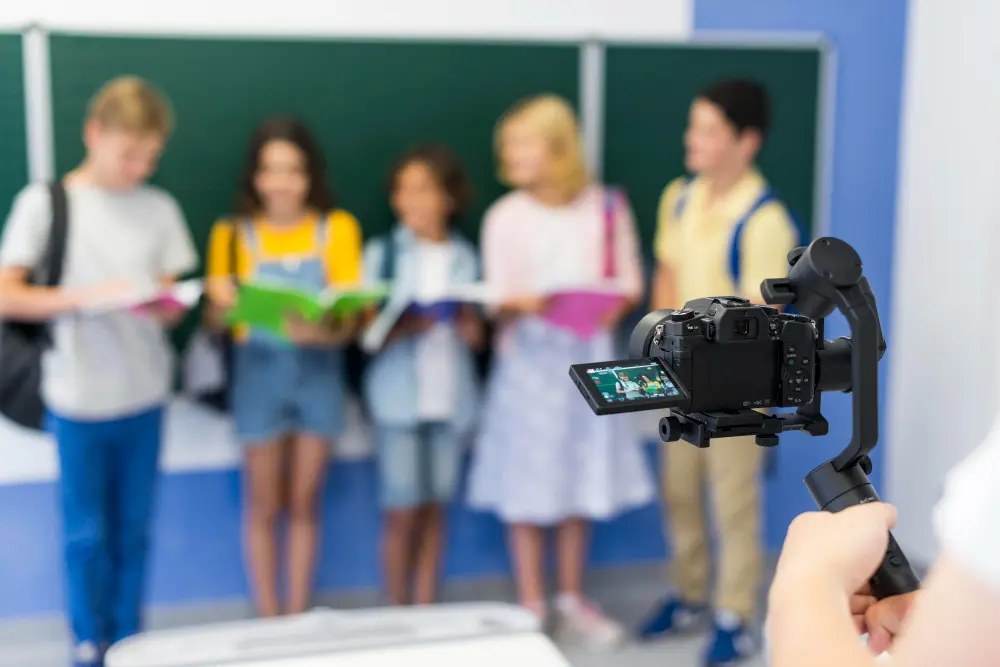
Finland recognizes that students must be prepared for a digital future. ICT is integrated into every subject, ensuring that technology is a natural part of learning. Students are introduced to online safety, data privacy, and responsible digital communication. They also explore the basics of coding and practice digital collaboration through group projects. In doing so, they learn not just technical skills but also how to use digital tools responsibly and creatively in different contexts, preparing them for both professional and personal digital environments.
From an early age, students learn what it takes to thrive in the workplace and how to develop entrepreneurial skills. They engage in projects simulating real-world work environments, such as setting up mock companies or managing class events. These activities build initiative, creativity, and problem-solving capabilities. Schools may also partner with local businesses to provide practical exposure, helping students understand the realities of professional life. This competence nurtures both employability and innovation, encouraging students to see themselves as active contributors to society.
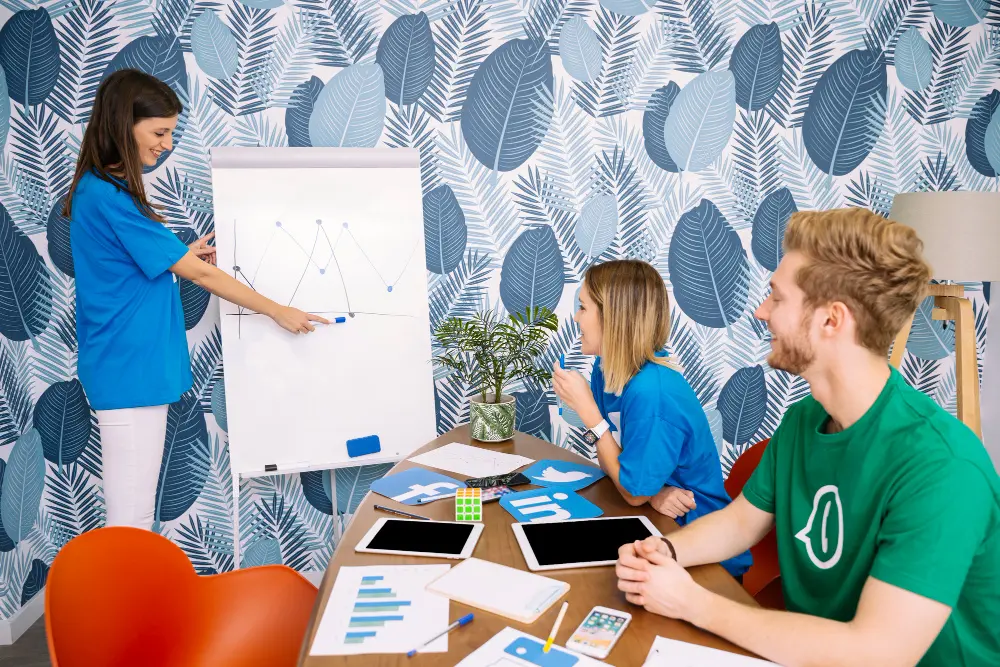
Students are taught to be active citizens who contribute to society. They participate in school decision-making through student councils and classroom discussions, learning the value of shared responsibility. Sustainability and environmental awareness are emphasized through projects such as recycling programs, community clean-ups, and climate-related campaigns. In these activities, students experience first-hand how individual actions connect to broader societal goals, preparing them to make thoughtful choices that benefit future generations.
Metacognition is key to Finland’s approach. Students learn to set personal goals and reflect on their learning strategies, developing a strong sense of self-directed learning. Teachers guide them in identifying strengths, addressing weaknesses, and applying problem-solving across subjects. This competence is reinforced through project-based learning where students must adapt and find creative solutions. The outcome is learners who are flexible, critical, and able to adjust to new challenges in their studies and beyond.
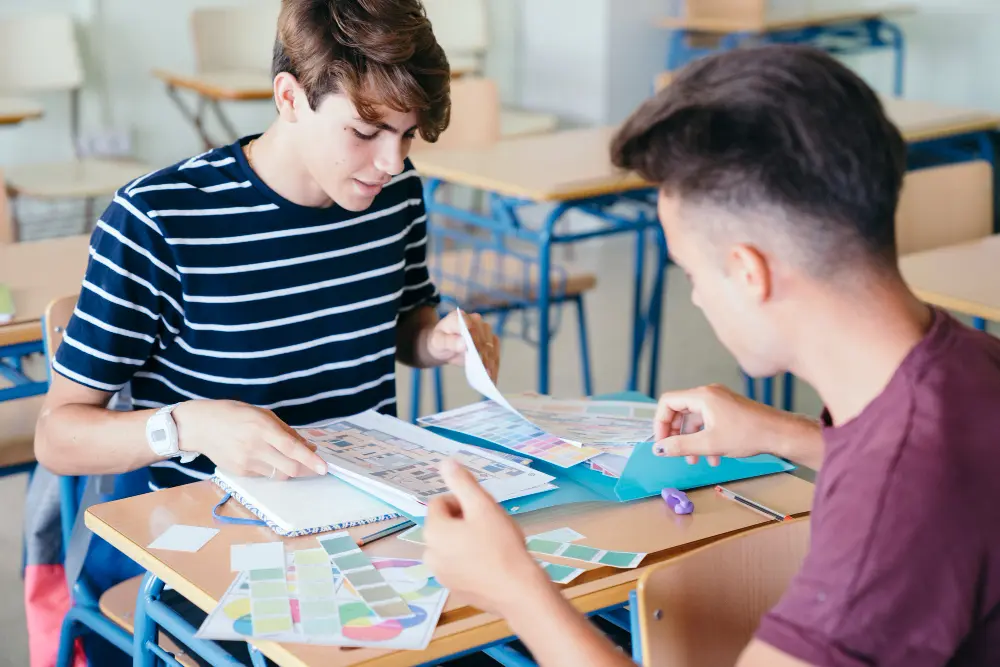
This competence prepares students for life in a multicultural, globalized world. Students explore cultural diversity by studying literature, history, and traditions from Finland and abroad. Arts, music, and drama provide avenues for self-expression, allowing them to communicate ideas in multiple forms. Social skills like empathy, dialogue, and teamwork are nurtured through group activities and collaborative projects. Together, these practices foster openness, respect, and intercultural understanding, essential qualities for living and working in diverse communities.
Life skills in Finland are not confined to one subject. Instead, they form part of a holistic educational philosophy where every lesson, activity, and interaction reinforces them. They are embedded into teaching practices, extracurricular activities, and the overall school culture. Whether through classroom projects, school-wide events, or daily routines, Finnish schools make sure that life skills are lived experiences rather than abstract goals.
Each year, Finnish schools conduct multidisciplinary learning modules. For example, a theme like “Water” may be studied through science, geography, literature, and art. This method connects knowledge and builds multiple life skills simultaneously. Students learn to see links between subjects and to approach issues from different perspectives. These projects often culminate in presentations or exhibitions, giving students a sense of accomplishment and practical experience in communication, teamwork, and creative problem-solving.
Teachers design lessons that best fit their students. They are trusted as professionals who know how to adapt teaching methods, choose suitable materials, and organize activities. Students themselves often participate in planning learning activities, which develops responsibility and ownership. For example, classes might vote on themes for projects or co-create classroom rules. This collaborative planning fosters agency and makes learning more relevant to students’ own lives.
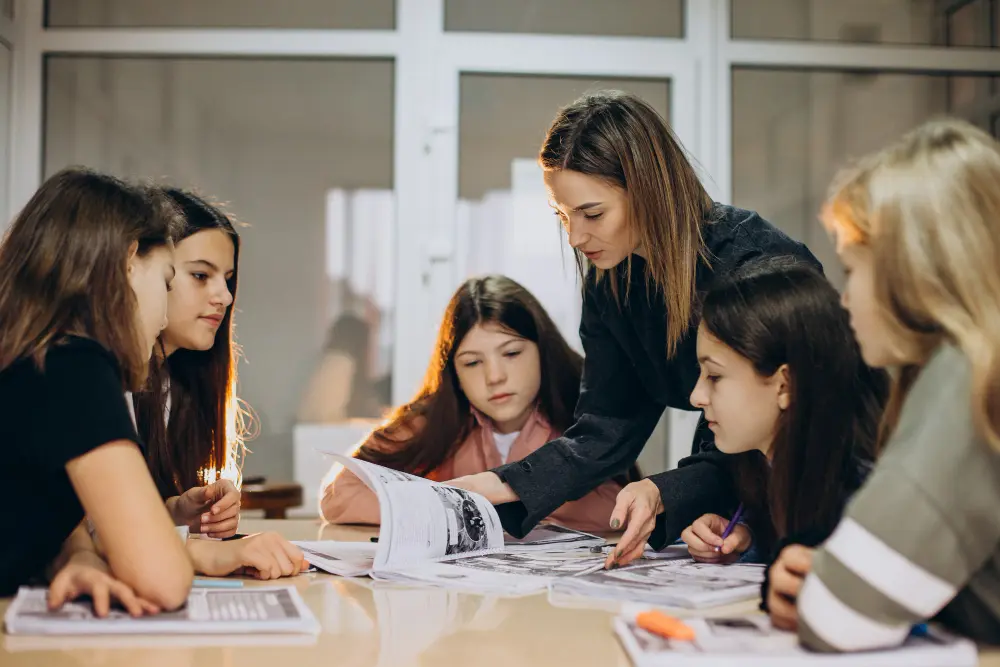
Assessment in Finland is supportive rather than punitive. The goal is to guide learning and encourage growth instead of ranking students against one another.
Formative feedback is emphasized through regular conversations, written notes, and reflective tasks. Students and teachers reflect together on progress, identifying strengths and setting new learning goals. Life skills are evaluated within each subject rather than separately, ensuring they are recognized as part of everyday learning. This approach helps students view assessment as constructive guidance, building motivation and confidence.
The school environment fosters well-being, trust, and mutual respect. Creating a supportive atmosphere is considered just as important as teaching academic content. Health and emotional support are integrated into everyday school life through guidance counseling, regular health check-ups, and access to school psychologists or nurses. A culture of safety and respect helps students feel confident to express themselves, ask questions, and try new ideas without fear of failure. Activities like shared meals, outdoor learning, and student clubs strengthen social bonds and create a sense of belonging.
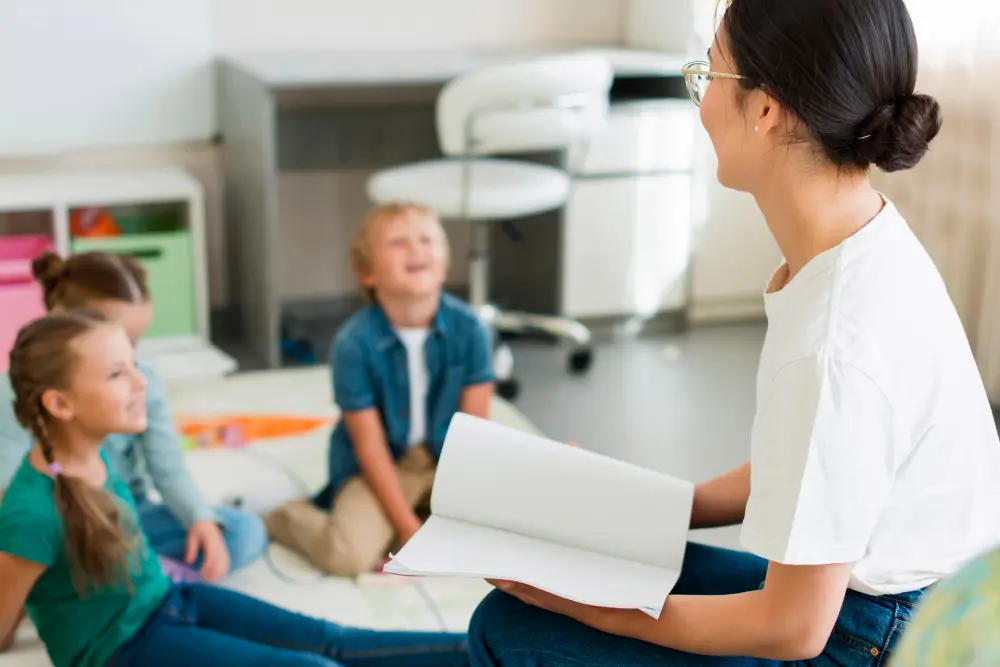
At the upper secondary level, life skills are deepened further. The 2019 National Core Curriculum for this stage includes:
This area focuses on building a strong sense of identity, resilience, and mental health. Students are guided to reflect on who they are, how they can manage stress, and how to maintain balance in life. Schools emphasize activities that promote self-confidence and emotional awareness, preparing students to handle the pressures of both academic life and the world beyond.
Students develop effective communication and collaboration skills that are crucial for working in groups and participating in society. Through debates, group projects, and classroom discussions, they practice active listening, expressing their views respectfully, and negotiating with others. These experiences prepare them for teamwork in higher education and future careers.
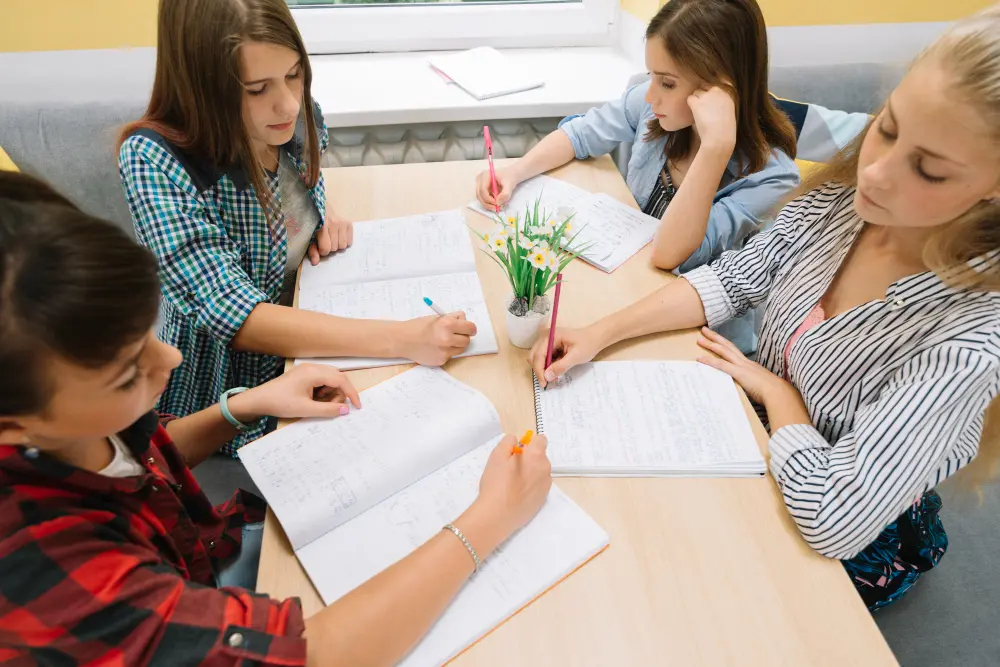
This competence highlights the importance of connecting knowledge from different fields and fostering creativity. Students engage in projects that require them to draw from science, arts, and social studies simultaneously. By blending creativity with analytical thinking, they learn how to approach problems from multiple angles and generate innovative solutions.
Societal competence deepens students’ understanding of democracy, ethics, and global issues. Schools provide opportunities for pupils to engage with real-world social challenges, such as climate change, human rights, and civic participation. By doing so, students gain an appreciation of their responsibilities as citizens and the role they play in shaping fair and just societies.
.webp)
Students are encouraged to reflect on ethical dilemmas and understand the importance of sustainable development. Classroom activities may include analyzing case studies, participating in environmental campaigns, or discussing ethical issues in science and technology. These experiences help young people develop moral reasoning and a strong commitment to protecting the environment for future generations.
These competencies prepare students for higher education, careers, and responsible citizenship.
Students learn not only scientific facts but also how to design experiments, use digital tools, and apply critical thinking. This approach ensures that science lessons are connected to real-life phenomena and encourages curiosity, analysis, and innovation. For example, many Finnish schools conduct projects on local environmental issues such as monitoring water quality in nearby lakes or studying biodiversity in forests. By carrying out investigations and presenting results to their peers or even local communities, students strengthen both their knowledge and their problem-solving abilities while seeing how science connects to everyday life.
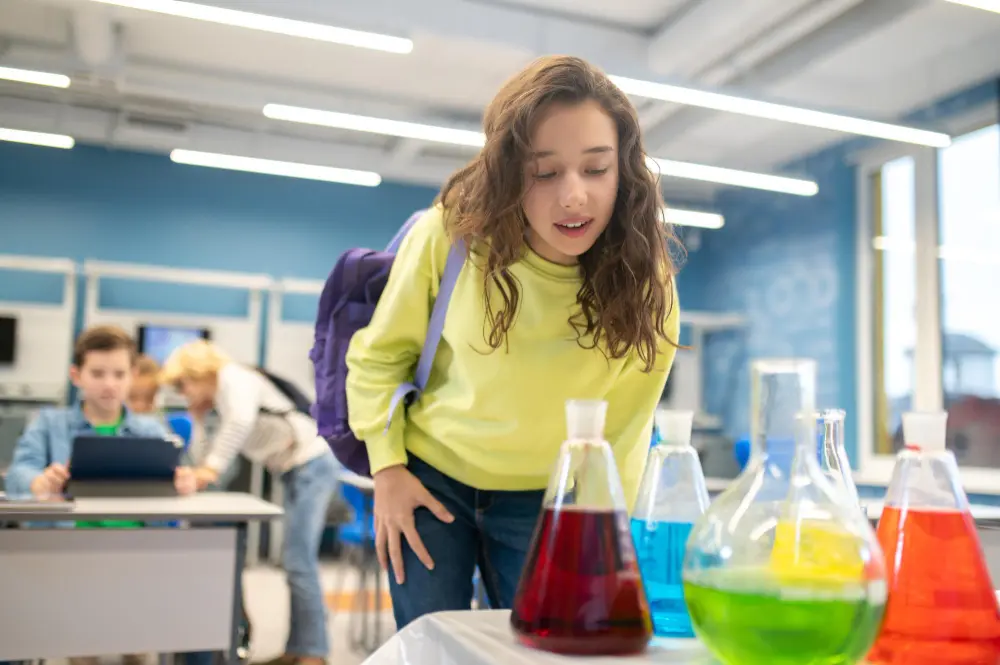
Schools often host simulations where students run mock companies, fostering creativity and financial literacy. Learners gain experience in planning, budgeting, teamwork, and leadership. One well-known initiative is the JA Company Program (Junior Achievement), which allows Finnish students to create real businesses, develop products, and sell them in local markets. These experiences build initiative and confidence, teaching students how to manage risks, work with others, and see ideas through from planning to execution. By taking responsibility for real-world style projects, they are prepared for both future employment and entrepreneurial ventures.
Many Finnish schools integrate sustainability into their everyday practices and classroom projects. For instance, students may design eco-friendly school gardens, participate in recycling campaigns, or work on energy-saving initiatives within their schools. These hands-on activities teach responsibility, teamwork, and environmental awareness, while also connecting students with local communities and global sustainability goals.
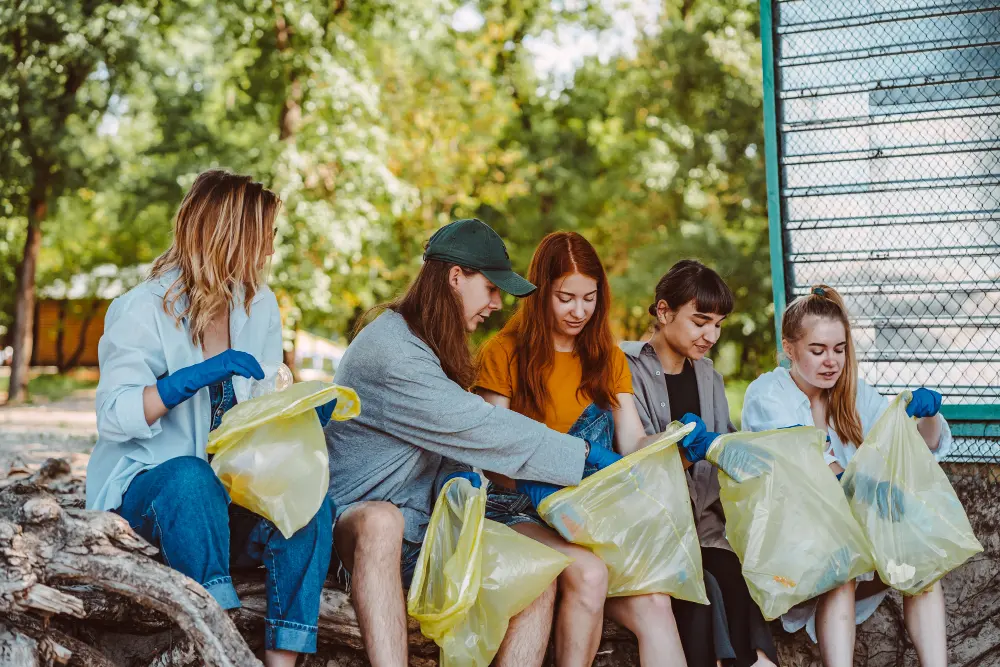
Some schools in Finland take part in exchange projects and online collaborations with schools abroad. Through programs like eTwinning, Finnish students work with peers in other countries on shared projects, often focusing on themes such as culture, language, or science. This fosters intercultural competence, digital collaboration skills, and global citizenship, giving students valuable experience in working across borders.
Finland’s approach shows that life skills are as important as academic knowledge. By weaving these competences into every subject, the Finnish curriculum demonstrates how education can be holistic and future-oriented. For other countries, these practices offer inspiration and concrete models for shaping curricula that prepare students not only for academic success but also for life beyond school:
Students trained in transversal skills are ready for future challenges. By practicing critical thinking, problem-solving, and resilience in school, they can more easily adapt to changing careers, technologies, and social environments. Adaptability helps them thrive in uncertain futures where flexibility is a key strength.
Focus on emotional and social learning helps build well-rounded individuals. Finnish schools place equal importance on academic knowledge and personal development, ensuring that students grow into empathetic, cooperative, and confident people. This balanced approach nurtures both intellectual ability and emotional intelligence.
Embedding life skills into every subject can guide curriculum reforms worldwide. Finland’s example shows that when life skills are systematically integrated into education, students gain competencies that benefit them throughout life. Other countries can adopt similar approaches to make education more relevant, meaningful, and future-oriented.
The Finnish curriculum demonstrates that education should prepare students not just for exams, but for life itself. By emphasizing skills like critical thinking, digital literacy, cultural competence, and resilience, Finland ensures that its students are equipped with both the knowledge and the personal qualities needed to succeed in the real world. These skills prepare young people to face complex challenges, collaborate effectively with others, and take responsibility for their futures.
If you are a teacher, school leader, or education professional who wants to see how these ideas work in real classrooms, we warmly invite you to book a school visit in Finland with TechClass. During such a visit, you can observe lessons, interact with Finnish educators, and witness firsthand how these life skills are seamlessly integrated into everyday learning and school culture.

